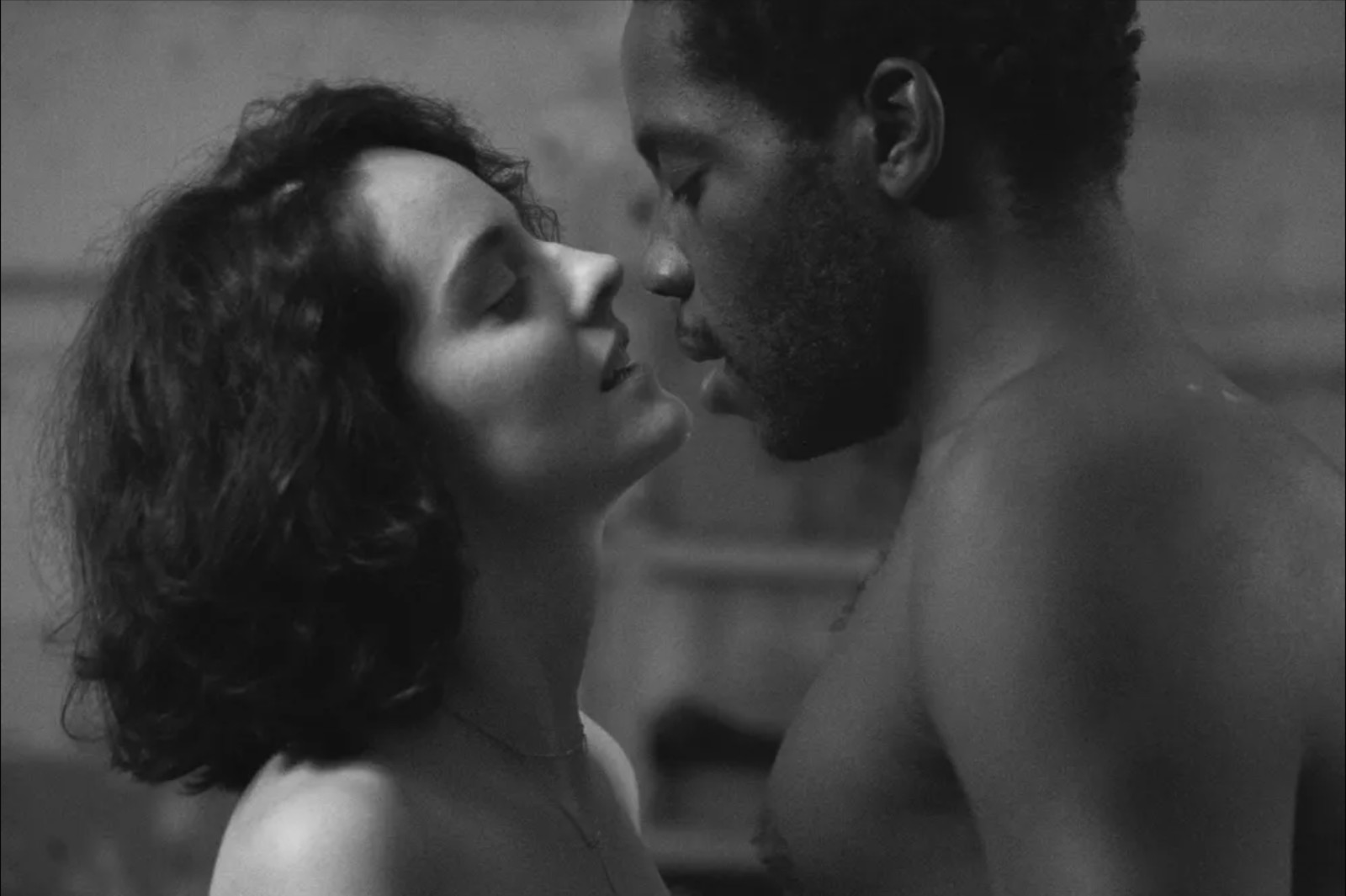There is no such thing as a typical Jacques Audiard film. Take his last three as examples: in 2012 he captured the trauma-induced romance between a wayfaring father and killer-whale trainer in rural seaside France in Rust and Bone; in 2015 he won the Palme d’Or for Dheepan, a film about a Sri Lankan freedom fighter who seeks refuge in Paris with the involuntary help of two strangers fronting as his wife and daughter; in 2018 he cast Joaquin Phoenix and John C. Reilly as bickering, sharp-shooting brothers hunting down Jake Gyllenhaal and Riz Ahmed in frontier-era Oregon in The Sisters Brothers. His newest, Paris, 13th District, is something entirely different.
Audiard’s career-spanning desire to jump from story to story has landed him some new, noteworthy co-writers. The wandering narrative was penned by Léa Mysius, Portrait of a Lady on Fire writer-director Céline Sciamma, and Audiard himself. It’s an interwoven adaptation of three black-and-white Adrian Tomine short stories––“Amber Sweet,” “Summer Blonde,” and “Hawaiian Getaway”––from his graphic novel collection Killing and Dying (pulled from his popular New Yorker cartoon series, Optic Nerve). It’s like Robert Altman quilting Raymond Carver material to make Short Cuts but with disenchanted young professionals on the outskirts of modern-day Paris and far fewer stories. (And not one of the best movies ever made.) It’s a new, zestful, nonchalant, ultimately underwhelming flavor of Audiard.
The film takes place in Paris’ 13th district in Les Olympiades (where the French title takes its name), a specific subsect known for its twelve towering residential skyscrapers and ethnically diverse makeup. The former is captured brilliantly by DP Paul Guilhaume through vast, layered shots of the city from all angles in the film’s defining black-and-white cinematography, a blend of cascading light and enveloping shadow. The latter is reflected in its three leads.
Émilie Wong (Lucie Zhang) is an obstinate French-Chinese post-grad in her early thirties. She sells lower-class people data plans over the phone that are designed to sneak up on them financially; she’s also the most cynical in the bunch, which is saying a lot. Camille Germain (Makita Samba) is a Black teacher with aplomb in nearly every situation. That includes when he shows up at Émilie’s door to move in and she’s surprised to find he isn’t a woman. She’s not interested in a male roommate, but Camille is irresistibly sexy. She’s horny, he’s forthright about channeling his professional frustrations into sex, and she tries to play it cool, making it obvious that she channels her everything into sex. Thus, they decide to “Fuck first, then figure it out.” What could go wrong?
Meanwhile, Nora Ligier (Noémie Merlant) is starting law school at 32 at the Sorbonne. Apparently that’s too late to be doing so, according to her classmates, who act as one collective, teasing high school clique filling the giant lecture hall with laughter. It seems plain silly until we realize everyone thinks Nora is the popular webcam star Amber Sweet (vicious post-punk singer Jehnny Beth) in plainclothes disguise.
Off-put but intrigued, Nora starts paying Amber Sweet for private shows just to chat about their doppelganger looks, incidentally striking up a friendship. Camille eventually ventures into real estate, as does Nora. She shows up for a job interview with Camille, crushes it in a matter of minutes, and walks out the door slinging suggestions for improving the business much to Camille’s delight.
The tapestry of stories continues to weave, spotlighting the intelligence, cynicism, and relative aimlessness that characterize these leads. The dreamy, brash, no-fucks-given energy is matched by Rone’s poppy, dubstep-driven score, which explodes onto the scene in needle drop after needle drop, starting with a bang but losing steam exponentially from lack of iteration. But the black-and-white aesthetic never stops giving. Costumes and production design are synchronized to accentuate stunning contrast––take a checkered coat, for instance, or a club scene that works like a hallucinogenic strobe sequence––and so the rare display of color plays like a champ.
Paris, 13th District wades in the strange, true interconnectedness of life and evokes the banality within, so much that it starts to become banal itself. From one angle, it prompts us to consider our existence with a bit more weightlessness, allowing us to let go if the narrative sinks in. From another perspective, watching the film is like watching strangers live mediocre days for 105 minutes, albeit with a lot of spicy sex scenes. With less than nine months in between its conception and premiere and many of its high-level creatives embroiled in other projects during production, one wonders if more time or focus might have given way to more nuance.
Paris, 13th District premiered at Cannes Film Festival and will be released in the U.S. by IFC Films.

